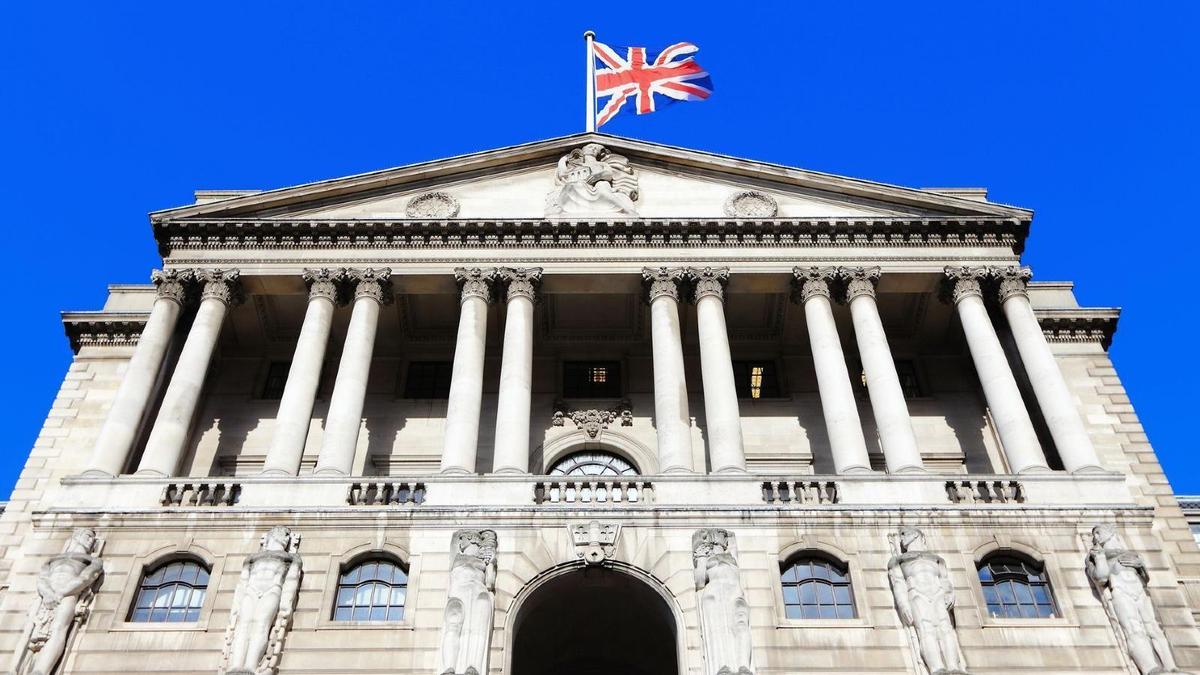Bank of England Cuts Interest Rates for First Time Since Pandemic
01.08.2024 15:44 1 min. read Alexander Stefanov
The Bank of England has lowered interest rates for the first time since the onset of the pandemic, reducing the base rate to 5%.
This marks a shift from a year of steady rates, decided by a close vote within the central bank’s policy committee.
Governor Andrew Bailey, casting the deciding vote, indicated that easing inflationary pressures prompted the cut. Despite this, he cautioned against expecting further significant reductions soon.
The decision comes as the UK faces ongoing cost-of-living challenges and follows a recent drop in inflation to the Bank’s 2% target. The pound weakened against major currencies after the announcement.
The Bank’s forecast suggests inflation might briefly exceed 2% but is expected to fall back to around 1.7% in two years. Economic growth has recently surpassed expectations, although the Bank anticipates a slower rate in the near future.
The central bank emphasized that, despite this rate cut, monetary policy will remain restrictive to ensure inflation control and economic stability.
-
1
March Inflation Slows, but Trade Tensions Threaten Rebound
10.04.2025 16:30 2 min. read -
2
Europe Divided Over Crypto Threat as Trump Policies Raise Concerns
23.04.2025 11:00 2 min. read -
3
U.S Economy: Surprise GDP Drop Sparks Recession Fears as Inflation Stays Hot
30.04.2025 16:49 1 min. read -
4
Federal Reserve Flags Growing Risks to U.S. Economy in New Stability Report
27.04.2025 16:11 1 min. read -
5
BRICS: China Accelerates Yuan Adoption to Undermine Dollar in Global Trade
30.04.2025 16:00 1 min. read
Fed Holds Rates as Inflation and Growth Pull in Opposite Directions
At its May 7, 2025 meeting, the Federal Reserve left the federal funds rate unchanged at 4.25% to 4.50%, marking the fourth consecutive decision to keep rates steady.
Wall Street Joins Trump in Saudi Arabia to Court Gulf Billions
President Donald Trump is set to make his first overseas trip since returning to office, leading a high-powered U.S. delegation to Saudi Arabia, Qatar, and the UAE next week.
China Demands Tariff Rollback as Global Trade Strains Deepen
Global markets are feeling the strain as U.S. trade policy under President Donald Trump continues to send ripples through the world economy.
Warren Buffett Warns U.S. Deficit Could Spiral Out of Control by 2027
Warren Buffett sounded the alarm on America’s worsening fiscal health during what may be his final Berkshire Hathaway shareholders meeting, cautioning that the country is heading toward a financial cliff if spending habits remain unchecked.
-
1
March Inflation Slows, but Trade Tensions Threaten Rebound
10.04.2025 16:30 2 min. read -
2
Europe Divided Over Crypto Threat as Trump Policies Raise Concerns
23.04.2025 11:00 2 min. read -
3
U.S Economy: Surprise GDP Drop Sparks Recession Fears as Inflation Stays Hot
30.04.2025 16:49 1 min. read -
4
Federal Reserve Flags Growing Risks to U.S. Economy in New Stability Report
27.04.2025 16:11 1 min. read -
5
BRICS: China Accelerates Yuan Adoption to Undermine Dollar in Global Trade
30.04.2025 16:00 1 min. read

